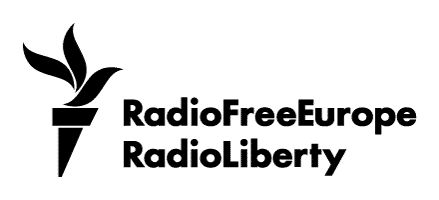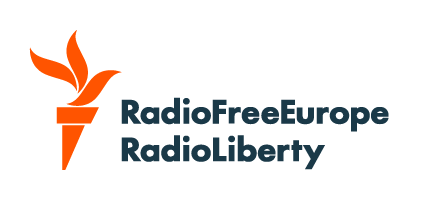Washington, 14 December 2005 (RFE/RL) -- A series of closed criminal trials are taking place across Uzbekistan of dozens of people allegedly involved in the Andijon uprising.
The Uzbek Supreme Court announced last week that 25 people were convicted in two separate closed trials. The defendants were sentenced to prison terms ranging from 12 to 22 years. Last month, the court jailed 15 people accused of involvement to similar prison terms.
That case, which was held in open court, took almost two months to complete, while not one of the more recent closed proceedings -- in cities such as Yangibozor, Tuytepa, and Yangier -- has lasted more than two weeks. Dozens of people remain in custody, awaiting trial.
Those jailed in connection with Andijon have been accused of crimes including murder, terrorism, attempting to overthrow the government, and belonging to outlawed Islamic groups. But with the proceedings closed, the exact nature of the accused's religious affiliation remains shrouded in mystery. The Uzbek government has cited the need to ensure the safety of victims and witnesses as its rationale for the secret trials.
John Kinahan is an editor for the Forum 18 News Service, which tracks religious freedom around the world. He spoke at a roundtable yesterday at RFE/RL headquarters in Washington. According to Kinahan, those accused of involvement in the Andijon uprising are Muslims, but there is no evidence they held extremist views.
"It's clear that the businessmen who were on trial were devout Muslims following Islamic charitable practice in relations to their employees and others. [Uzbek President Islam] Karimov is very fond of talking about religious extremism, arms, recruits. The overtones are, I think, all too familiar to us. But nobody has actually found any credible evidence of that. The [Organization for Security and Cooperation in Europe] OSCE's Office for Democratic Institutions and Human Rights interviewed refugees from Andijon within a month of the uprising. They found no evidence in their interviews of such terroristically inclined religious extremism," Kinahan said.
Human rights groups say hundreds of people, mostly civilians, were killed in the May uprising. The Uzbek government says 187 people died, mostly Islamic militants, and denies that troops fired on unarmed civilians.
Another Forum 18 editor, Felix Corley, said that while the Uzbek authorities are promoting the bogeyman of Islamic extremism, religion in any form has always proven frightening for authoritarian political leaders. According to Corley, they fear religion because it is something they cannot control or understand.
"In the Soviet period, you could only worship within the four walls of a registered building," Corley said. "They still have this idea that you must have registration to act. You must meet only in a registered venue and that you do not stray outside your own ethnic religion. All Russians are Orthodox. All Uzbeks or Turkmen or Kazakhs are Muslim -- this type of thing. It's a fear that the leaders have -- a fear of societies and institutions within society -- that they cannot control. They do not understand religion quite often. They don't know what it is all about. And they know that if people believe in a god who is higher than humankind, well, where's the president in all this -- especially where there is a huge and enormous cult of personality?"
Both Uzbekistan and Turkmenistan escaped inclusion on the U.S. State Department's annual list of serious violators of religious freedom last month. The U.S. Commission on International Religious Freedom had recommended earlier this year that the State Department cite Uzbekistan, Turkmenistan, and Pakistan as "countries of particular concern."
But Uzbekistan may yet make it on the list. Catherine Cosman, senior policy analyst for the U.S. Commission for International Religious Freedom, told RFE/RL: "A country can be named a CPC [country of particular concern] at any time during the year. People in the State Department who are involved in this process have indicated that it's possible that another country will be named. The speculation is that that country may be Uzbekistan."
Like Cosman, Kinahan and Corley believe that the situation regarding religious freedom in both Uzbekistan and Turkmenistan has worsened in the past year. Controls on religious groups, particularly Muslims, are tighter than they were a year ago.
"I think it should be said in the aftermath of Andijon that peaceful Muslims across Uzbekistan were called in for questioning by the authorities and were asked to sign declarations that they would not join extremist -- undefined -- organizations," Kinahan said. "I think when one hears phraseology about extremism, one has to be aware that very frequently this is undefined and is used in very, very loose sense."
While designating Uzbekistan as a "country of particular concern" is one way to pressure Tashkent, Corley and Kinahan suggested an alternative exists. OSCE member governments, they said, could pressure both Turkmenistan and Uzbekistan to observe the agreement they freely entered into with the OSCE regarding human rights. The right to religious freedom is one of a bundle of rights that both governments agreed to uphold.
The OSCE has called on Uzbekistan's government to allow international observers to attend the Andijon trials.
Aftermath Of Andijon

A dedicated webpage bringing together all of RFE/RL's coverage of the events in Andijon, Uzbekistan, in May 2005 and their continuing repercussions.




